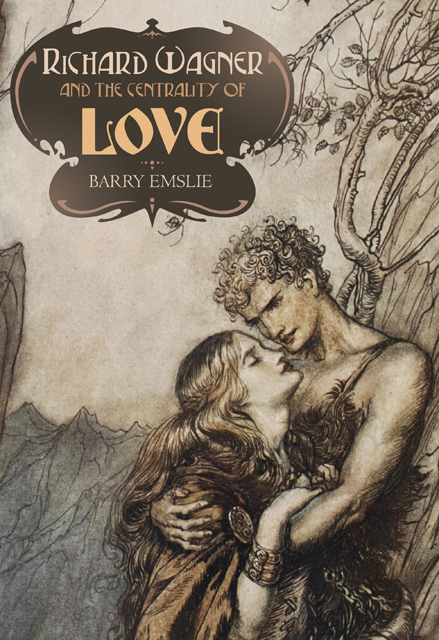Book contents
- Frontmatter
- Contents
- Author's Note
- 1 Introduction, or the Uses of Love
- 2 Sensuality and Spirituality in the Early Music Dramas
- 3 Music and the Eternal Feminine
- 4 The Ring of the Nibelung
- 5 Love and Death: Tristan und Isolde
- 6 The Mastersingers of Nuremberg
- 7 Parsifal
- 8 Contradictions and Speculations
- Notes
- Bibliography
- Index
8 - Contradictions and Speculations
Published online by Cambridge University Press: 02 March 2023
- Frontmatter
- Contents
- Author's Note
- 1 Introduction, or the Uses of Love
- 2 Sensuality and Spirituality in the Early Music Dramas
- 3 Music and the Eternal Feminine
- 4 The Ring of the Nibelung
- 5 Love and Death: Tristan und Isolde
- 6 The Mastersingers of Nuremberg
- 7 Parsifal
- 8 Contradictions and Speculations
- Notes
- Bibliography
- Index
Summary
Wagner is trapped in contradictions of his own making because he is, in the first instance, intellectually brave and highly imaginative. But he is also uncompromising. He pursues his objectives ruthlessly and, as a result, he seldom shirks the dilemmas into which his own theories and praxis lead him. That is, he does not avoid those contradictions with which he is confronted as a result of his own creative fecundity, although he might well attempt to rationalise them away. So while he evolved for the music dramas a particular aesthetic form (the so-called Gesamtkunstwerk) which allegedly gave him a coherent overarching genre (even accepting that many perceptive commentators such as Thomas Mann cannot take it seriously), he nevertheless allowed the richness of his material to lead him into fresh territory. In the end, the ten music dramas from The Flying Dutchman to Parsifal are remarkable, in that they are all clearly interrelated – both through formal compositional characteristics and the redemption theme – yet each is quite inimitable. Each can be seen as an attempt to tackle the problems of the preceding work and to tap the inspiration that flows from its unresolved contradictions. This is so in respect of both their musical and textual language together with whatever deeper conceptual and aesthetic programme is in play. Therefore we are confronted by works whose superficial homogeneity is unequalled (at least on the opera stage), but which are nevertheless stamped and animated by rich and multifarious conflicting tensions. Meanwhile the essays can be seen as an attempt to construct a theoretical, highly imaginative, although frequently pseudo-academic, scaffolding for the music dramas, and hence they often articulate the problems of the stage works in a manner that is not only different but more direct. Consequently it is not unreasonable to expect them to be upfront as to the deeper conceptual goals of the Wagner project. And should we have any doubts as to either the extent of the difficulties or the tempestuous nature of these labours, the private documents (letters, diaries etc.) will soon put us right. There we find the naked Wagner: enthusiastic, despairing, constantly betrayed, devious, embittered, generous, tearful, enraged, supplicating, ecstatic … and always very theatrical.
All this means that there is a great deal of material with which we can play, making at our leisure and in accordance with our partial agendas, the Wagner of our choice.
- Type
- Chapter
- Information
- Richard Wagner and the Centrality of Love , pp. 255 - 294Publisher: Boydell & BrewerPrint publication year: 2010



